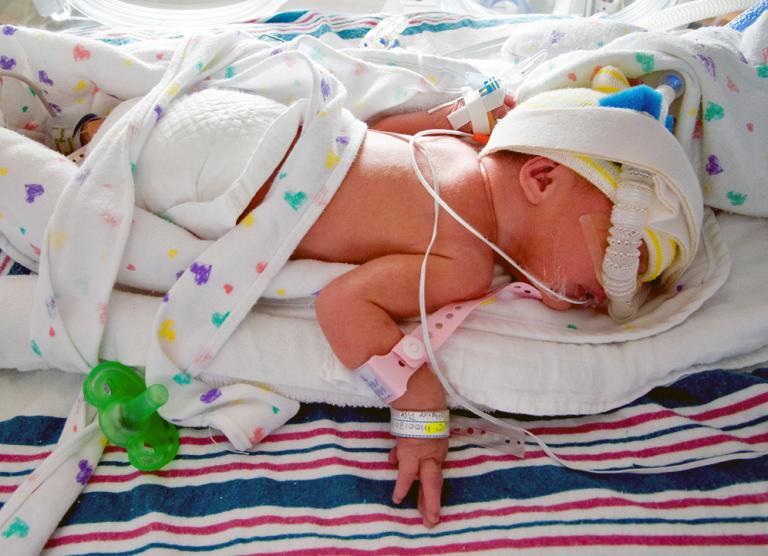So what about early miscarriages?
You’ve heard that before – and it’s reappeared in comments on a prior blog post. It goes like this: large proportions of newly-conceived embryos/blastocysts/fertilized eggs/unborn babies simply don’t make it past those very early weeks of pregnancy. This means that there’s nothing wrong with intentionally “inducing a miscarriage” during (or after) this time period.
Why? Take your pick of reasons:
- The fact that these early miscarriages occur means that God clearly doesn’t think that human life is valuable from conception, or he wouldn’t have created such a mechanism.
- The fact that pro-life groups don’t actively push for intensive research in how to prevent these very early miscarriages, means that they themselves don’t think that newly-conceived beings are worthy of protection.
- The fact these early miscarriages occur so frequently means that, when you “induce a miscarriage” you’re actually doing something natural, and something natural can’t be immoral.
- The fact that these early miscarriages occur so frequently means that do so intentionally is just adding a small number onto an already large total, so it clearly can’t matter.
Which are all nonsensical reasons.
Here are the facts: a “chemical pregnancy” refers to a pregnancy loss shortly after implantation, before or just coinciding with when a woman would have expected her period, so that the woman isn’t even aware it has occurred unless she has taken a pregnancy test very early, as might be the case for couples trying to get pregnant. (According to a site I read, then closed out of and can’t find again, the bleeding is heavier than a normal period.) It’s called “chemical pregnancy” because it can only be identified by biochemical testing, that is through the hormone levels a pregnancy test tests for, so that “chemical pregnancy” really means “pregnancy that never advanced any further than the chemically-identifiable stage.” This is differentiated from a “clinical pregnancy,” meaning, a pregnancy that can be identified clinically — that is, via ultrasound confirmation. Now, irritatingly, I can’t find any website that gives a date at which ultrasound confirmation is possible, but it seems to be treated as roughly the time period at or shortly after the missed period.
How often does this happen?
Here are some studies on the matter, all footnotes from “A Little Bit Pregnant: Modeling How the Accurate Detection of Pregnancy Can Improve HIV Prevention Trials“:
“Incidence of early loss of pregnancy” says that in a study in which women were monitored to detect the earliest signs of pregnancy, 22% of pregnancies were lost before “clinical pregnancy” was established, and 31% of pregnancies total resulted in miscarriages.
“Estimates of human fertility and pregnancy loss” reports a 31% total miscarriage rate, and 41% of those miscarriages, or 13% total, were chemical pregnancies, that is, defined in this study as before a missed period.
“Conception, early pregnancy loss, and time to clinical pregnancy: a population-based prospective study” (a study from 2003, in China), reports rates of 25% for early pregnancy loss (which seem again to be their label for chemical pregnancies), and 33% total miscarriages.
So we’re looking at a figure of, at most, 25%.
Why do chemical pregnancies occur — and could they be prevented? The universal consensus seems to be that they are the result of severe genetic malformations, and thus, different that miscarriages later which may have connections to a women’s body’s ability to carry a pregnancy.
So what about those ways in which the existence of chemical pregnancies is meant to “prove” that abortion is moral?
Apples and oranges.
In Europe during the Black Death, 1/3 of the population died. Does that mean that, since your neighbor had a good chance of dying anyway, it was OK to kill him? What about the self-proclaimed “angels of mercy” who show up every now and again killing people in nursing homes, who “would have died anyway”? Is there any situation in which, given a death toll from natural causes, it becomes moral to kill, just because, in the grand scheme of things, “eh, what’s one more death, anyway?”
No, of course not. You’re comparing a natural process to an intentional action.
You might further say it’s apples an oranges in another way, too — given that this supposed “holocaust” of early miscarriages occurs earlier in time, before a woman not already hoping to get pregnant would even know she’s pregnant vs. later, after a missed period is confirmed to be due to pregnancy, which means that the embryos being intentionally aborted are not the “nonviable from the start” ones in any case. But I don’t even think you need to say that.
When it comes down to it, I think it’s a lot more honest to say, “rights are determined by societal consensus, and current consensus is abortion’s OK” if that’s what you believe, rather than to claim that there’s a finely-tuned, highly-principled reason why abortion is OK until week X, or until birth, or maybe just afterwards for euthanasia purposes, or whatever other line you choose.
But then, of course there’s a broader conversation here — if you reject the idea of “rights” as divinely ordained, then how, after all, can you persuade me to oppose slavery, for instance? — but that’s a conversation for another day.












